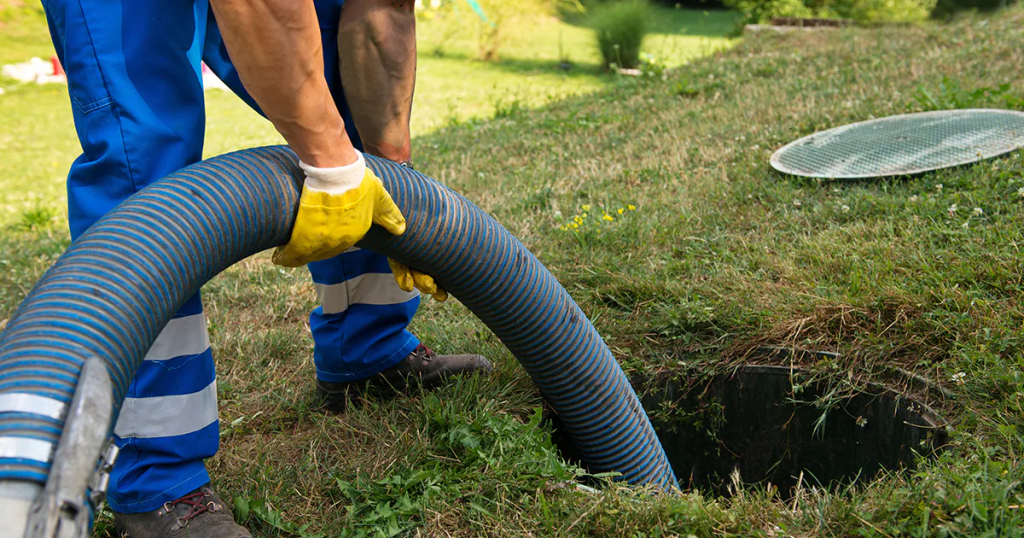Homeownership comes with various responsibilities, and one crucial aspect often overlooked is the proper maintenance of the septic system. In Berthoud, Colorado, where many homes rely on septic tanks for wastewater management, understanding the importance of regular septic tank pumping is vital. In this comprehensive guide, we’ll delve into the reasons why residents should prioritize Berthoud septic tank pumping, signs indicating it’s time for a pump-out, and the overall benefits of maintaining a healthy septic system.
The Importance of Regular Septic Tank Pumping
1. Preventing System Overload:
Over time, solid waste accumulates at the bottom of the septic tank, forming a sludge layer. If this layer becomes too thick, it can lead to a system overload. Regular pumping helps remove excess sludge, preventing it from clogging pipes and causing a backup in your home.
2. Avoiding Costly Repairs:
Neglecting septic tank maintenance can result in costly repairs. Pumping the tank at regular intervals ensures that the system operates efficiently, reducing the likelihood of breakdowns or the need for extensive repairs. Investing in routine pumping can save homeowners significant expenses in the long run.
3. Protecting the Drainfield:
A healthy septic tank is essential for the overall functionality of the drainfield. When the tank is full, untreated wastewater can flow into the drainfield, saturating the soil and compromising its ability to filter and treat the effluent. Regular pumping prevents this overflow, preserving the integrity and longevity of the drainfield.
Signs Your Septic Tank Needs Pumping
Being aware of the signs indicating that your septic tank requires pumping is crucial for proactive maintenance. If you notice any of the following signs, it’s time to schedule a Berthoud septic tank pumping service:
1. Slow Draining Fixtures:
If sinks, showers, or toilets in your home are draining slowly, it may indicate a full septic tank. The accumulation of sludge can impede the flow of wastewater, leading to sluggish drainage.
2. Foul Odors:
Unpleasant odors emanating from drains or the area around the septic tank may signal a full tank. As the sludge breaks down, it releases gases that can cause offensive smells. Prompt pumping eliminates these odors and restores a fresh environment.
3. Pooling Water:
Standing water or damp areas around the septic tank or drainfield suggest a potential problem. This could be a result of an overflowing septic tank, and immediate attention is required to prevent further damage.
4. Lush Grass Growth:
While a healthy lawn is desirable, an unusually lush and green patch above the septic tank or drainfield may indicate a leak or overflow. Pumping the tank can rectify this issue and prevent environmental damage.
The Benefits of Regular Septic Tank Pumping
1. Prolonged System Lifespan:
Routine pumping removes accumulated solids, preventing excessive strain on the septic system. This helps extend the lifespan of the tank and associated components, saving homeowners from the hassle of premature replacements.
2. Enhanced System Efficiency:
A well-maintained septic system operates more efficiently. Regular pumping ensures proper waste separation and treatment, reducing the risk of backups, clogs, and other issues that can disrupt your household.
3. Environmental Conservation:
A properly functioning septic system plays a crucial role in protecting the environment. Regular pumping prevents untreated wastewater from contaminating the soil and nearby water sources, contributing to the conservation of local ecosystems.
4. Cost Savings:
While some may view septic tank pumping as an expense, it is a cost-effective measure in the long run. Avoiding major repairs and system replacements by investing in regular pumping can save homeowners substantial amounts of money over time.
How Often Should You Pump Your Septic Tank?
The frequency of septic tank pumping depends on various factors, including household size, water usage, and tank size. As a general guideline, Berthoud residents are advised to pump their septic tanks every 3 to 5 years. However, it’s crucial to have a professional assess your specific situation and recommend a suitable pumping schedule based on your household’s needs.
DIY Septic Tank Maintenance Tips
While professional pumping is crucial, homeowners can also take proactive steps to maintain a healthy septic system between pump-outs. Consider the following do-it-yourself (DIY) tips:
1. Monitor Water Usage:
Be mindful of water consumption in your household. Implement water-saving practices, such as fixing leaks promptly and using high-efficiency appliances, to reduce the strain on your septic system.
2. Avoid Harmful Substances:
Refrain from flushing harmful substances down the drains, such as grease, chemicals, and non-biodegradable items. These can disrupt the natural bacterial balance in the tank and contribute to clogs.
3. Regular Inspections:
Conduct regular visual inspections of your septic system. Keep an eye out for any signs of standing water, odors, or unusually green areas in the yard. Early detection of issues allows for timely intervention.
4. Pump Grease Traps:
If your home has a grease trap, ensure it is regularly pumped and maintained. This prevents grease from entering the septic system and causing blockages.
5. Proper Landscaping:
Be mindful of the landscaping around your septic tank and drainfield. Avoid planting trees or large shrubs with extensive root systems that could potentially damage the septic system components.
Conclusion
Berthoud septic tank pumping is an essential aspect of homeownership that should not be overlooked. Regular pumping not only prevents system overloads, costly repairs, and environmental damage but also contributes to the overall efficiency and longevity of your septic system. By staying vigilant for signs of a full tank and adhering to a proper pumping schedule, homeowners can ensure a healthy and worry-free wastewater management system for years to come. Remember, a well-maintained septic system is an investment in the long-term health and value of your home.
You may also like
-
The Rise of Flexible Living Spaces in UK Homes
-
Essential Tips for Setting Up a Productive Home Office
-
What Factors to Consider When Choosing Different Types of Commercial Garage Doors?
-
7 Essential Steps for UK Homebuyers Upon Moving In
-
Safety First: Operating and Maintaining Gasoline Generators for Home Use

